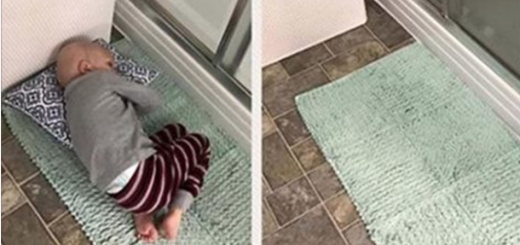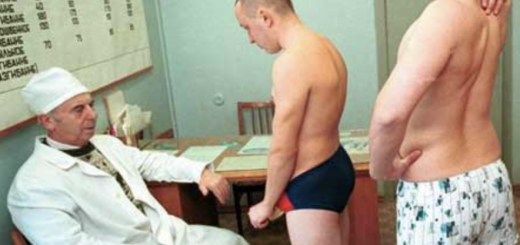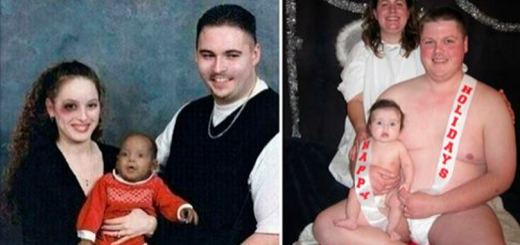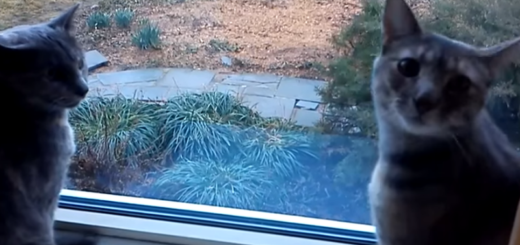Helen opened it before I had a chance to ring the bell, her face an unreadable mask.
— We’re in the living room, she stated, turning and walking away without another word.
The scene inside was palpably tense, like a tableau vivant. My father was sunk into his usual armchair, his complexion ashen. Emily was perched on the very edge of the sofa, her gaze fixed on her hands as she twisted her fingers. Mom stood sentinel behind her, a hand resting on the back of the couch in a gesture of proprietary ownership. And seated in the armchair that had always been my designated spot was Jessica, her expression a careful blend of feigned concern and ill-concealed triumph.
— What is this? I asked, remaining on my feet as no one invited me to sit. — Emily, I thought we were going to talk.
— That is why we are all here, Mom cut in, seizing control before Emily could form a response. — There is something about the wedding that you need to understand.
A preternatural calm washed over me, the kind of stillness that precedes a violent storm.
— We have been discussing things, Mom continued, her voice adopting that condescending tone she had honed to perfection over the years. — As a family. And we have all reached the conclusion that your involvement has become… problematic.
— Problematic? I repeated, my eyes locked on Emily, who refused to look up.
— Your controlling nature, your incessant need to be the center of attention, Mom said, ticking off imaginary points on her fingers. — The way you have tried to eclipse Emily’s moment with your unsolicited opinions and your… financial gestures.
It felt like I had stepped through a looking glass into a distorted reality.
— Emily, I prompted again, my voice low, desperate to hear it from her.
She finally lifted her head, her eyes clouded with a mixture of guilt and what looked like rehearsed determination.
— It’s just… it’s been so stressful, Charlie. Every time you’re involved, it creates tension. Mom thinks—
— Mom thinks? I interrupted softly. — What do you think, Emily?
Before she could formulate an answer, Helen stepped forward, physically inserting herself between us.
— What Emily thinks is that her wedding day should be a joyous, stress-free occasion. And frankly, your presence would make that impossible.
The room seemed to tilt on its axis as her words landed.
— My presence at the planning, you mean?
A slow, cruel smirk spread across Mom’s face, a glint of satisfaction in her eyes as she delivered the coup de grâce she had been engineering for months.
— We’ve all agreed. You are not welcome at the wedding, she said, articulating each word with deliberate, savoring precision. — Not as the maid of honor. Not as a guest. It is better for everyone this way.
The ensuing silence was absolute, broken only by the loud ticking of the grandfather clock on the mantelpiece. My father shifted uncomfortably in his chair but remained silent. Jessica had the decency to study the pattern on the oriental rug. And Emily, my sister, my confidante since the day she was born, sat in mute complicity, severing thirty years of our shared history.
— I see, I said, astonished by the steadiness of my own voice. — And when was this decision finalized?
— We have been moving in this direction for weeks, Mom replied, clearly mistaking my shock for acquiescence. — Emily asked Jessica to be her maid of honor some time ago. We simply needed to make it official with you.
My gaze shifted to Jessica, who now met my stare with a defiant glint.
— Congratulations, I said, my voice flat.
— It’s nothing personal, she replied, the lie hanging transparently in the air between us.
I nearly laughed at the sheer absurdity of it. Nothing personal about being usurped in my own sister’s life.
— Emily, I tried one last time, my voice pleading. — Is this truly what you want?
Helen answered for her. Again.
— Rebecca wants a wedding free of drama. You have always been too overbearing, too opinionated. The venue I chose wasn’t up to your standards. The caterer wasn’t good enough.
— That is a complete fabrication and you know it, I snapped, the first crack appearing in my composure. — I have supported every single decision, even the ones I wasn’t consulted on. I have given thousands of dollars without ever being asked.
— See! There it is! Mom pointed a finger at me as if she had just won a debate. — Throwing your money in our faces. Using your financial power to try and control everything. This is precisely why you cannot be a part of this.
I looked at my father, a silent appeal for him to intervene, to say anything at all. He met my gaze for a fleeting second before looking away, his lifelong habit of choosing the path of least resistance winning out yet again.
A strange, cold clarity settled over me then, cutting through the swirling fog of hurt. This wasn’t a family squabble. This was a calculated, methodical purge.
— Good to know, I said simply.
I turned and walked to the door, my body moving on autopilot. I heard Emily say my name, a faint, questioning sound, but no one rose to stop me.
The drive back to my apartment was a blur of smeared headlights and unexpected tears. I had to pull over twice, unable to see the road through the sudden grief. My phone began to buzz incessantly, but I ignored it. When I finally stumbled into my apartment, Mark was there, his hopeful expression collapsing the second he saw my face.
— What happened? he asked, enveloping me in a hug.
The story came out in a torrent of broken sentences and sobs—the ambush, Mom’s vicious smirk, Emily’s betrayal, Dad’s silence, Jessica’s victory.
— They can’t do that, Mark said, his voice thick with outrage. — You’re her sister. All you’ve done is support her.
— Apparently, that’s irrelevant, I whispered, a profound emotional exhaustion seeping into my bones. — Mom has been laying the groundwork for months, turning Emily against me, convincing her I’m the villain.
— What are you going to do?
I stared out my window at the sprawling city lights below, feeling utterly hollowed out, yet strangely lighter. The worst had happened. Now, I could finally decide what came next.
— I don’t know yet, I admitted. — But I know I deserve better than this.
What I didn’t grasp in that moment was that the confrontation was not the end. It was merely the prelude to the true depths of the betrayal—and the unexpected beginning of my own path to healing.
Sleep was an impossibility that night. I lay in bed, the scene from my parents’ house playing on a torturous loop in my mind. By 4 a.m., I gave up, padding into my kitchen and sitting at the table as the city outside remained dark and silent. With a cold cup of tea beside me, I began to take inventory.
The photographer’s deposit: $2,500.
The custom welcome baskets for out-of-town guests: $1,800.
The surprise string quartet for the ceremony: $1,200.
The list grew as I recalled smaller, more personal contributions—the antique hairpin I’d sourced to match our grandmother’s earrings, the calligrapher I’d hired for the place cards. And then, the honeymoon. The crowning jewel of my affection for my sister. First-class flights to Maui: $4,200. The private oceanfront villa: $3,800. The curated experiences—a private cooking class, a sunset sail, a guided hike to a secluded waterfall: $600.
I had invested over $15,000 in a wedding from which I was now formally banished.
As the first hints of dawn painted the sky, a quiet resolve settled over me. I opened my laptop. With methodical precision, I transferred the $8,600 honeymoon fund from its dedicated account back into my own. I logged into the airline and resort websites, canceling every reservation. A crisp, professional email went to the travel agent, informing her that plans had changed.
My phone, which had buzzed all night, was now filled with notifications. Three missed calls from Emily, twelve from Mom, and, most unusually, one from Dad. The texts from Mom were a study in emotional escalation, from defensive indignation (You’re making this all about you, as usual) to outright accusation (After all we have done for you). There was no hint of remorse.
























































